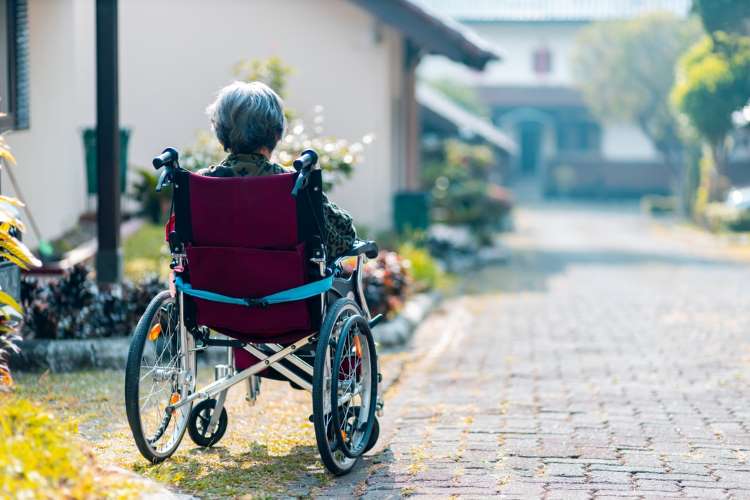
Dementia is a disease that causes progressive decline in brain function. It is a global public health challenge as a range of actions is required to improve care and services for people living with Dementia and their caregivers. The global status report by the World Health Organisation on dementia presents a sobering picture about the hitherto unaddressed public health challenge.
This article is based on the WHO report that was published recently and will provide an overview of the challenges of dementia and highlight its significance as a public health issue. It argues that dementia is a global public health issue, calls for global policy response, and provides context to discuss and analyse the policy response to dementia.
Dementia is an umbrella term for several diseases affecting memory, other cognitive abilities and behaviour that interfere significantly with a person’s ability to maintain his/her activities of daily living. Worldwide, around 55 million people have dementia, and there are nearly 10 million new cases every year. As the proportion of older people in the population increases in nearly every country, this number is expected to rise to 78 million in 2030 and 139 million in 2050.
Two in three people with dementia live in low- and middle-income countries. There is often a lack of awareness and understanding of dementia, resulting in stigmatisation and barriers to diagnosis and care. The impact of dementia on careers, family, and society can be physical, psychological, social, and economic.
The intersection between the Covid-19 pandemic and dementia needs to be studied, analysed and interventions need to be fine-tuned. Dementia is one of the significant causes of disability and dependency among older people worldwide. It can be overwhelming, not only for people who have dementia but also for their families that provide care and support.
READ I Covid-19 lessons: Public health system must offer free drugs, diagnostics
Some key facts about dementia
- Dementia is a syndrome in which there is deterioration in cognitive function beyond what might be expected from the usual consequences of biological ageing. Although dementia mainly affects older people, it is not an inevitable consequence of ageing. dementia results from a variety of diseases and injuries that primarily or secondarily affect the brain.
- Alzheimer’s disease is the most common form of dementia and may contribute to 60-70% of cases.
- Dementia is currently the seventh leading cause of death among all diseases and one of the significant causes of disability and dependency among older people.
- Dementia has physical, psychological, social, and economic impacts on people and their careers, families, and society.
- Dementia is a progressive, chronic syndrome that leads to deterioration in a person’s ability to process thought.
- It affects memory, thinking, orientation, comprehension, calculation, learning capacity, language, and judgement. Consciousness is not affected. The impairment in cognitive function is commonly accompanied and occasionally preceded by changes in mood, emotional control, behaviour, or motivation.
Dementia affects each person differently, depending on the underlying causes, other health conditions and the person’s cognitive functioning before becoming ill. However, the signs and symptoms linked to Dementia can be understood in three stages.
Early-stage symptoms: The early stage of dementia is often overlooked because the onset is gradual. Common symptoms may include forgetfulness, losing track of time, becoming lost in familiar places.
Middle stage symptoms: As dementia progresses to the middle stage, the signs and symptoms become clearer and may include becoming forgetful of recent events and people’s names, becoming confused while at home, having increasing difficulty with communication, needing help with personal care, and behaviour changes including wandering and repeated questioning.
Late-stage symptoms: The late stage of dementia is one of near-total dependence and inactivity. Memory disturbances are severe, and the physical signs and symptoms become more apparent and may include: becoming unaware of the time and place, having difficulty recognising relatives and friends, having an increasing need for assisted self-care, having difficulty walking, experiencing behaviour changes that may escalate and include aggression.
Alzheimer’s disease contributes 60-70% of the cases. The condition may also develop after a stroke or in the context of certain infections such as HIV, harmful use of alcohol, repetitive physical injuries to the brain or nutritional deficiencies. The boundaries between different forms are indistinct and mixed forms often coexist.
READ I Post-Covid labour market needs policy intervention, income support for vulnerable sections
Prevention, treatment and care
Dementia does not exclusively affect older people – young onset dementia (defined as the onset of symptoms before 65 years) accounts for up to 9% of cases. Studies show that people can reduce their risk of cognitive decline by being physically active, not smoking, avoiding harmful alcohol use, controlling their weight, eating a healthy diet, and maintaining healthy blood pressure, cholesterol and blood sugar levels. Additional risk factors include depression, social isolation, low educational attainment, cognitive inactivity and air pollution.
There is currently no treatment available to cure dementia. Anti-dementia medicines and disease-modifying therapies developed to date have limited efficacy and are primarily labelled for Alzheimer’s disease, though numerous new treatments are being investigated in various stages of clinical trials. However, much can be offered to support and improve the lives and their careers and families. The principal goals for care are:
- Early diagnosis in order to promote early and optimal management,
- Optimising physical health, cognition, activity and well-being,
- Identifying and treating accompanying physical illness,
- Understanding and managing behaviour changes,
- Providing information and long-term support to careers.
Social, economic, gender and human rights impact
Dementia severity is an essential driver of cost and the proportion of mild, moderate, and severe dementia cases. The annual per-patient cost increase steadily with increasing dementia severity, ranging from $16000 for mild dementia, $27000 for moderate dementia, to $36000 for severe dementia.
The cost of dementia treatment has a significant impact on care systems. However, worryingly, long-term care systems in LMICs are not well-prepared, placing a heavy burden on careers and families, and although the current estimates of the impact and cost of dementia are markedly high, these numbers are likely underestimating the actual cost.
The estimation of global economic costs of dementia is complex for various reasons. There is a lack of data from many parts of the world, particularly from LMICs, and a scarcity of population-based cohort studies that represent their diverse communities. Available studies are conducted in small geographical areas and then extrapolated. Moreover, many people with dementia are not detected by the healthcare system or may not have a formal diagnosis. As such, their numbers are not routinely captured by national health information systems, adding complexity to cost studies and leading to an underestimation of costs.
Individual, social costs of dementia
Dementia has significant social and economic implications beyond direct medical costs. Social care costs and the costs of informal care add to the burden. The estimated total global societal cost of dementia was $1.3 trillion, and these costs are expected to surpass $2.8 trillion by 2030 as both the number of people living with the condition and care costs increase.
In 2019, informal careers (i.e., most commonly family members and friends) spent on average 5 hours per day providing care for people living with dementia. This can be overwhelming. Physical, emotional and financial pressures can cause significant stress to families and careers, and support is required from the health, social, financial and legal systems. Half of the global cost of dementia is attributed to informal care.
According to WHO, dementia has a disproportionate impact on women. At lease, 65% of the total fatalities are among women, and disability-adjusted life years due to the condition are roughly 60% higher in women than in men. Additionally, women provide most informal care, accounting for 70% of career hours.
People with dementia are frequently denied the fundamental rights and freedoms available to others. For example, in many countries, physical and chemical restraints are used extensively in care homes for older people and acute care settings, even when regulations are in place to uphold the rights of people to freedom and choice. An appropriate and supportive legislative environment based on internationally accepted human rights standards is required to ensure the highest quality of care for people with the condition and their careers.
WHO recognises dementia as a public health priority. In May 2017, the World Health Assembly endorsed the global action plan on the public health response to dementia 2017-2025. The global action plan looks to improve the lives of people with dementia, their families and careers while decreasing the impact on communities and countries. The WHO’s global action plan provides a comprehensive blueprint for action across seven areas:
- Making dementia a public health priority
- Increasing dementia awareness, inclusion and friendliness
- Reducing the risk of dementia
- Improving diagnosis, treatment and care
- Supporting dementia careers
- Enhancing health information systems for dementia
- Fostering research and innovation.
Dementia has a shattering psychosocial and economic impact on people living with the condition, their careers, families, communities, and the national health systems. Therefore, it must remain a public health priority for all stakeholders.
(Dr Joe Thomas is Professor of Public Health, Institute of Health and Management, Victoria, Australia. Opinions are personal.)
Dr Joe Thomas is Global Public Health Chair at Sustainable Policy Solutions Foundation, a policy think tank based in New Delhi. He is also Professor of Public Health at Institute of Health and Management, Victoria, Australia. Opinions expressed in this article are personal.


